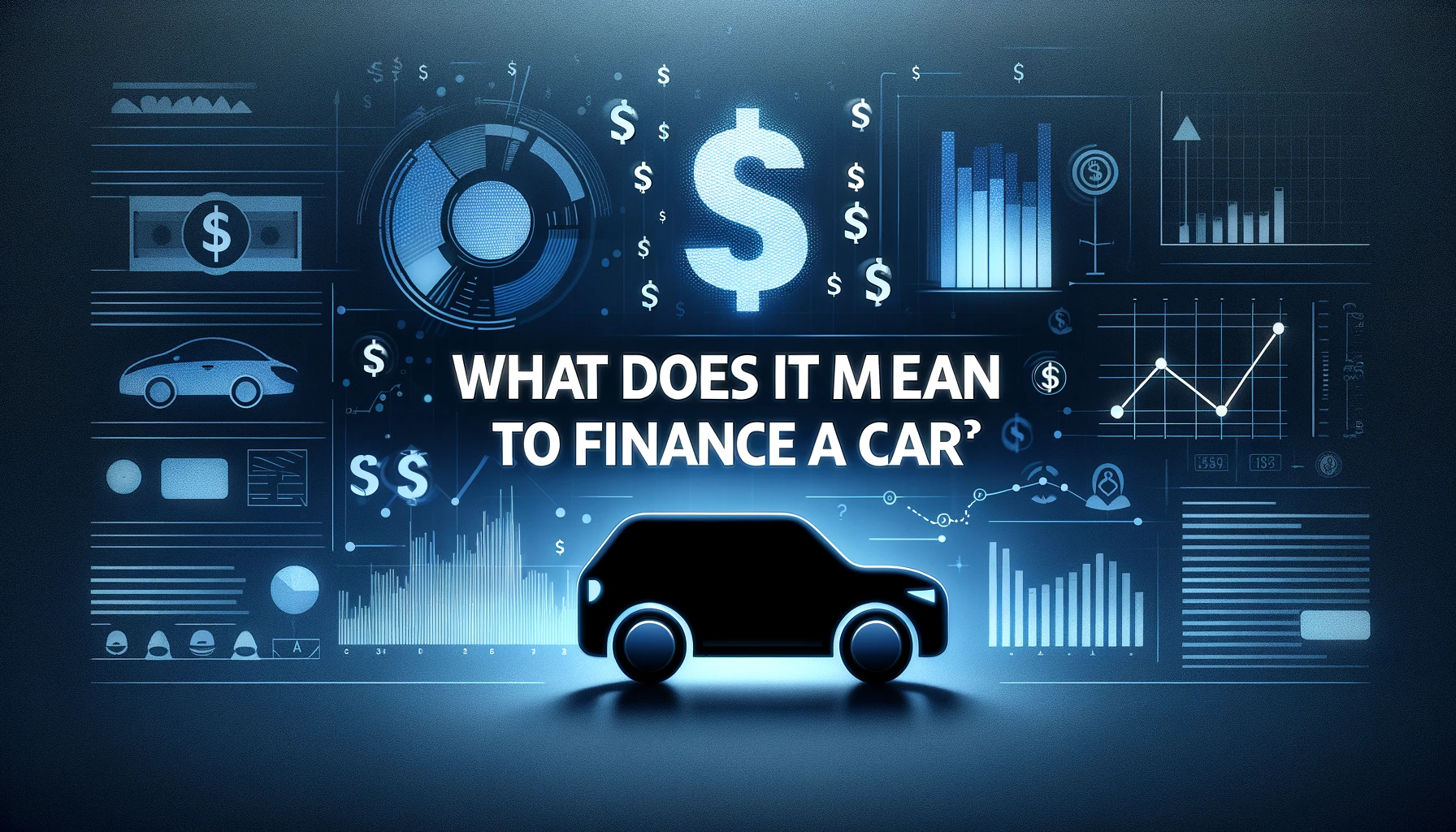Financing a car involves obtaining a loan to purchase a vehicle, allowing the buyer to pay for the car over time instead of upfront. This process is common for both new and used vehicles and involves several components, including interest rates, loan terms, and credit assessments.
This article explores the intricacies of car financing, highlighting its various aspects, potential pitfalls, and how to navigate them.
Understanding Car Financing:
The Basics of Car Loans
Car financing refers to borrowing money specifically to purchase a vehicle. The borrower agrees to repay the loan amount, along with interest and fees, over a predetermined period. Car loans are typically secured by the vehicle itself, which means the car serves as collateral for the loan.
Key Terminology
When borrowing money, it’s important to understand the two key terms: principal and interest. The principal is the core amount you borrow, like the price of a car. Interest is the fee you pay for the privilege of using that money, often expressed as a yearly percentage of the principal. So, think of the principal as the root of the loan, and the interest as the fee that grows on it over time. The more you understand these terms, the better equipped you’ll be to make informed financial decisions.
When considering a loan, the Annual Percentage Rate (APR) is crucial. It factors in not just the interest rate, but also any additional fees, giving you a clearer picture of the total annual cost. The loan term, typically expressed in months or years, determines how long you’ll have to repay the borrowed amount. In simpler terms, APR is the yearly price tag of your loan, while the term is the length of time you’ll be paying it off.
Types of Car Financing
Direct Lending
This explanation of direct lending seems more focused on the borrower experience for things like mortgages or car loans. Direct lending, however, is typically used in a different context. It refers to non-bank institutions like investment firms providing loans directly to businesses, particularly small and mid-sized ones.
These loans can help businesses grow or finance acquisitions, and while they may offer more flexibility than traditional bank loans, they also come with potentially higher interest rates.
Dealership Financing
Car dealerships offer financing options directly, allowing you to secure a loan for your vehicle purchase all in one place. This one-stop approach can be appealing for its convenience. However, dealership financing often comes with drawbacks, including potentially higher interest rates and a lack of transparency compared to securing a loan from a bank or credit union.
The Car Financing Process
Pre-Approval
Pre-approval is a valuable step for potential borrowers as it provides a clear picture of their borrowing capacity and the associated interest rates. This knowledge empowers them to create realistic budgets and negotiate with greater confidence, making them stronger contenders in the competitive lending landscape.
Choosing the Right Loan
Navigating the loan landscape requires careful consideration of several factors to secure the best fit for your needs. While interest rates, loan terms, and monthly payments are all important aspects, comparison shopping is crucial.
By exploring offers from various lenders, you can ensure you’re getting the most competitive rates and terms, ultimately saving you money in the long run.
Finalizing the Deal
Securing a deal requires careful preparation. Gather proof of income, residence, and insurance to demonstrate your eligibility. Don’t just sign on the dotted line – carefully review the contract to ensure a smooth transaction by understanding any potential fees or terms hidden within the fine print.
Impact of Credit Scores on Car Financing
Credit Assessment
In order to assess your borrowing risk, lenders rely on credit scores, which are calculated based on your credit history. These scores offer a quick indicator of your trustworthiness as a borrower, and directly influence whether you’ll be approved for a loan and, if so, at what interest rate.
Improving Credit Score
Building a strong credit score is essential to qualify for a favorable car loan. Here’s a roadmap to get you there: First, obtain a free copy of your credit report to identify and dispute any errors. Next, prioritize on-time payments for all your bills, as payment history is the biggest factor impacting your score.
Reduce your credit card balances to lower your credit utilization ratio, which reflects the portion of your credit limit you’re using. Finally, avoid applying for too much new credit, as this can raise a red flag for lenders. By following these steps, you’ll be well on your way to a better credit score and a smoother car buying experience.
Advantages and Disadvantages of Financing a Car
Pros
Installment plans offer a double benefit for your wallet. By breaking down expensive purchases into manageable chunks, they make desired items more accessible, easing the upfront financial burden. Additionally, consistent on-time payments can act as a credit-building tool, potentially improving your credit score and unlocking better loan terms in the future.
Cons
Car loans can lock you into a long-term financial commitment, with terms stretching up to seven years. This extended payment period adds a significant burden in the form of interest, ultimately making the car more expensive than its sticker price.
Alternatives to Car Financing
Leasing
Deciding between leasing and buying a car hinges on three key factors: payments, ownership, and restrictions. Leasing typically offers lower monthly payments but you won’t own the car at the end. You’ll also have mileage limitations and potentially face excess wear-and-tear charges.
Buying involves a larger upfront investment and likely higher monthly payments, but you’ll own the car and can customize it freely. Ultimately, leasing is ideal for those who prefer driving a new car every few years with predictable costs, while buying is better for those who want to own their vehicle and customize it without limitations.
Paying Cash
Choosing cash allows for immediate ownership and avoids accruing interest, but it requires having the full amount on hand upfront.
Check Similiar Article: What is the Best way to Make Money on Stake!
Conclusion
Financing a car can be a strategic tool for many buyers, allowing them to acquire a vehicle without the immediate pressure of a hefty down payment. However, navigating the world of car loans requires a keen understanding of the loan’s terms, how interest rates impact the total cost, and the long-term financial obligations involved. Before diving in, it’s essential for potential car owners to assess their financial stability.
This includes considering not just the monthly payment, but also the total cost of financing, including interest and fees. Shopping around for the most competitive rates and terms from different lenders is crucial to ensure they’re getting the best possible deal.
While car financing offers the benefit of spreading out the cost of a vehicle, approaching it with a well-thought-out plan and a clear understanding of one’s financial situation is paramount. This ensures that financing a car is not just an attainable option, but also a financially sound decision.
Frequently asked Questions
What does it mean to finance a car?
Financing a car means borrowing money from a lender, like a bank or credit union, to pay for the vehicle. You’ll repay the loan, plus interest and fees, in monthly installments over a set term.
Do I need a down payment?
A down payment is not always required, but it can significantly reduce your monthly payment and the total amount of interest you’ll pay. Generally, a larger down payment is better.
What are interest rates like?
Interest rates on car loans vary depending on your credit score, the loan term, and the lender. Typically, borrowers with good credit qualify for lower interest rates.
How long is a typical car loan term?
Loan terms typically range from 24 to 84 months, with longer terms resulting in lower monthly payments but higher overall interest costs.
What happens if I miss a payment?
Missing a car loan payment can damage your credit score and lead to late fees. In extreme cases, the lender could repossess the car.
Should I finance from the dealership or a bank?
Shopping around for loan options from banks, credit unions, and online lenders can often get you a better interest rate than financing through the dealership.
What fees are involved in car financing?
There may be fees associated with originating the loan, processing paperwork, and government filings. Be sure to ask about all fees upfront.
Can I pay off the loan early?
Most car loans allow you to pay them off early without penalty, which can save you money on interest.
What happens to the car when the loan is paid off?
Once you’ve made your final loan payment, the car title will be transferred to your name, and you’ll own the car outright.
Is financing a car always the best option?
Financing can be a good option if you can’t afford to pay for a car upfront. However, it’s important to consider the total cost of the loan, including interest and fees. If you have good credit and can save up enough for a down payment, buying a car with cash can save you money in the long run.


